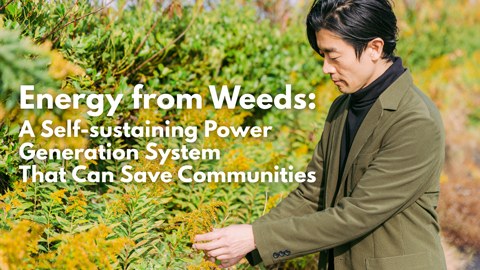More than 2 billion tons of domestic waste, including household refuse, are generated worldwide each year. This has become a critical social issue, especially in Global South nations, where waste management infrastructure is challenged to keep pace with rapidly increasing waste volumes. In response to this crisis, the Japanese company GOMI Solutions Co., Ltd. has stepped forward with an innovative system to address a mounting global problem.
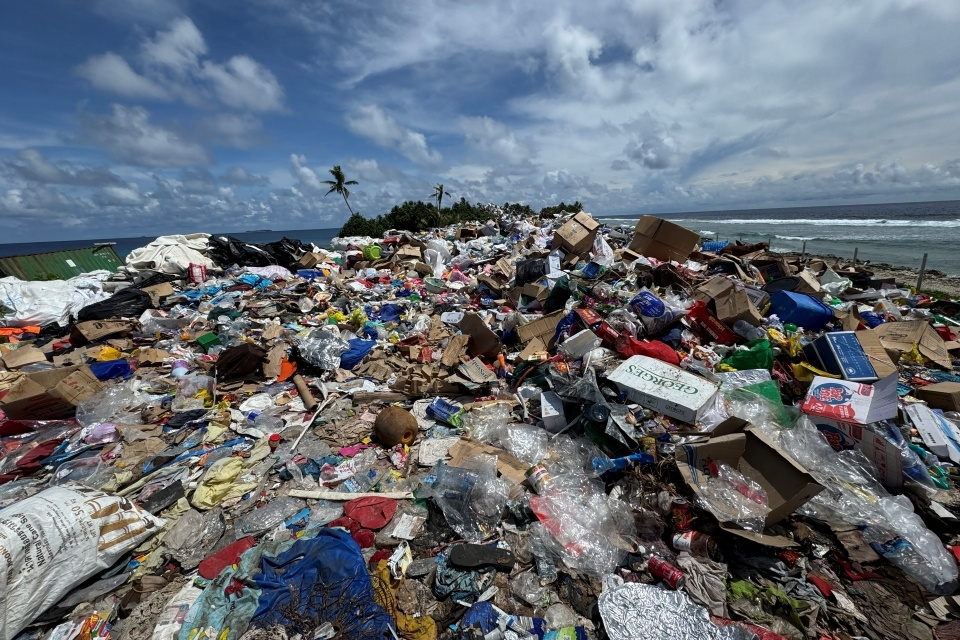
Tuvalu’s only landfill is already nearly filled to capacity with waste.
Waste management has become a critical issue worldwide, with the total volume of domestic waste increasing year by year and projected to reach 3.8 billion tons by 2050. The most significant growth in waste generation is occurring in regions heavily dependent on open dumping and burning, contributing to a rapid rise in pollution. In response to this global challenge, GOMI Solutions Co., Ltd. has developed GOMIX, a groundbreaking waste treatment system capable of transforming waste into valuable resources.
The GOMIX system does not directly burn waste, but instead uses pyrolysis technology to process it at high temperatures in an oxygen-free environment. This process breaks organic waste down into smaller components, significantly reducing its volume. Recyclable oil is generated from discarded plastics and resins, while organic waste produces carbon. These regenerated resources can be used as fuel to power the processing equipment, enabling circular waste management. Since the waste is not burned, harmful substances like dioxins are not produced, and carbon dioxide emissions are much lower than with incineration.
GOMI Solutions developed this technology based on the conviction of its CEO, SEKIYAMA Kazuta, that “waste treatment should use as few new resources as possible.” Currently, the company is developing projects in Southeast Asia, including Thailand, Cambodia, and Laos, as well as in India and the island nations of Fiji, Palau, Tuvalu, and Nauru in Oceania.
Waste management problems vary in character by country and region. Island nations often lack sufficient space to build landfills, while even countries where land is available may find the high cost of developing new landfills prohibitive, perpetuating the open dumping of waste. Meanwhile, changing lifestyles have increased the use of plastic bottles and shopping bags. As unmanageable waste proliferates, it accumulates in open heaps, adversely impacting the surrounding environment. However, the GOMIX system can be customized to local conditions by selecting appropriately sized equipment for installation.
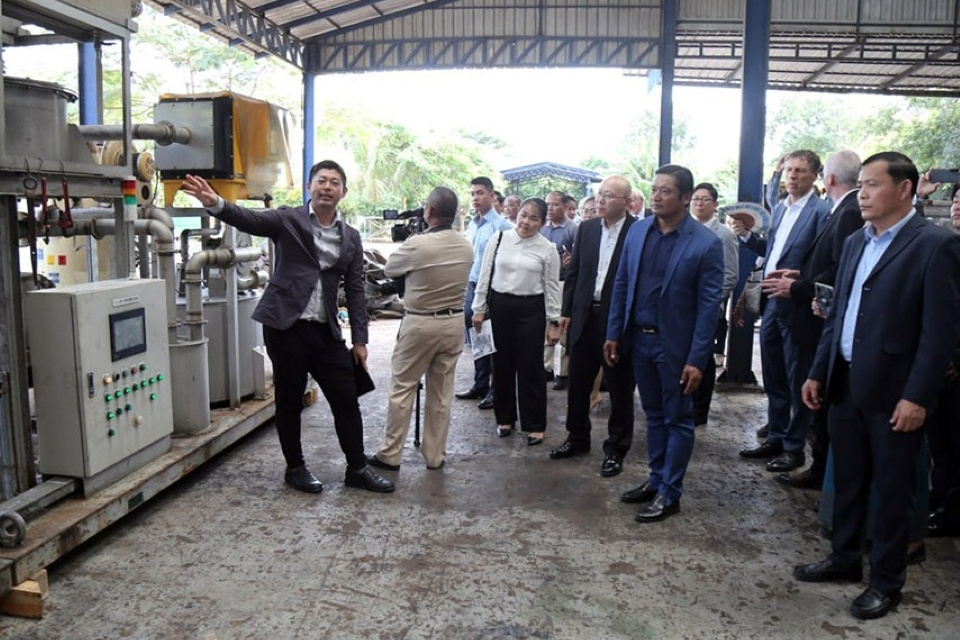
Officials, including the Siem Reap Deputy Provincial Governor and the French Ambassador, visit the waste management site in Siem Reap, Cambodia, to observe operations.
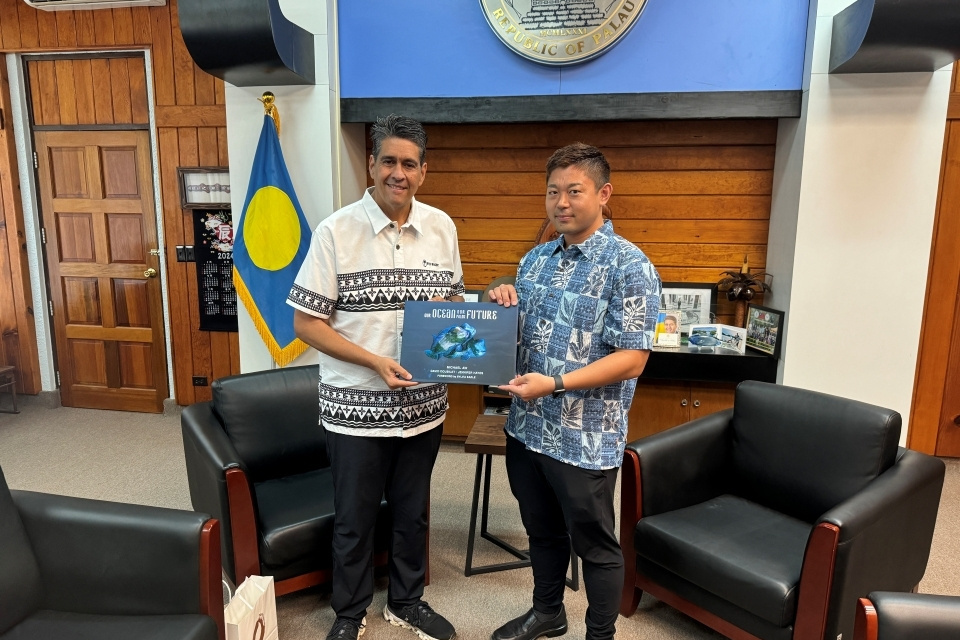
CEO Sekiyama (right) explaining the GOMIX system to the President of Palau as part of initiatives to expand its use in Palau.
Another key feature of the system is that it is designed to accommodate waste collection conditions in each country. “At open dumping sites in developing countries, there is a lot of mixed waste containing plastics, concrete debris, organic materials and the like, which makes sorting virtually impossible. Our system is designed to process such mixed waste, eliminating the need for sorting or cleaning before processing,” Sekiyama says.
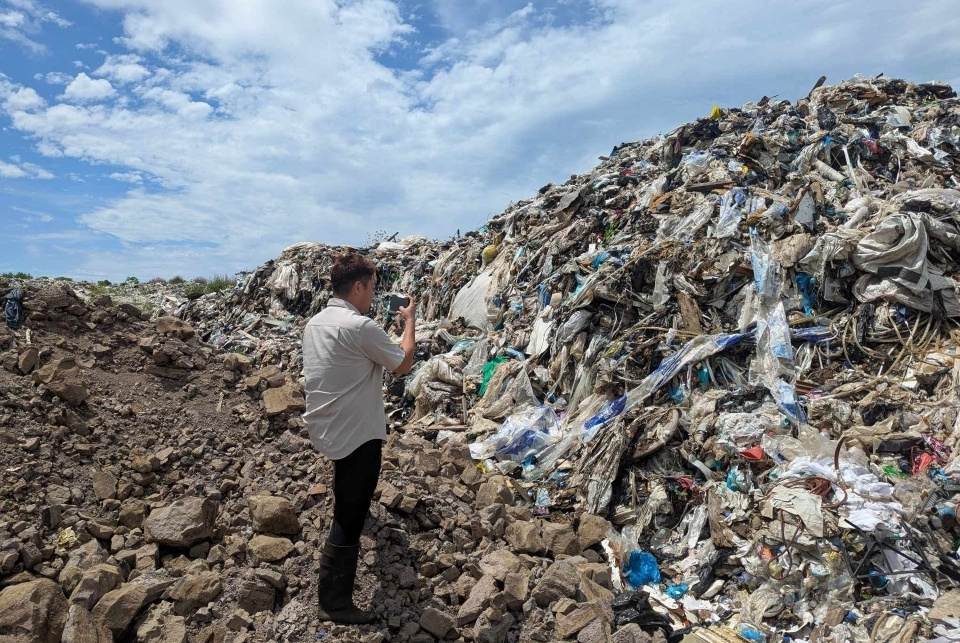
CEO Sekiyama visiting a landfill in Lautoka, Fiji, to install the GOMIX system, which can be customized to meet local needs.
GOMI Solutions is also promoting various initiatives tailored to local needs. One such effort, the Island Project, builds systems for complete on-island waste processing without requiring waste transport off-island, as seen on Thailand’s Koh Samet Island, where land is limited. The company’s Landfill Project, which aims to extend landfill lifespan by reducing waste volume, is geared to places like Siem Reap, Cambodia, where waste is increasing dramatically and landfills are expected to reach capacity in the near future.
At the same time, the company stresses that it cannot solve the global waste problem through its efforts alone. “Pyrolysis is a promising technology that can cycle waste into resources and energy,” says Sekiyama. “Rather than working alone, we want to collaborate with companies around the world that are promoting pyrolysis technology, and rise to this global challenge together.”




























